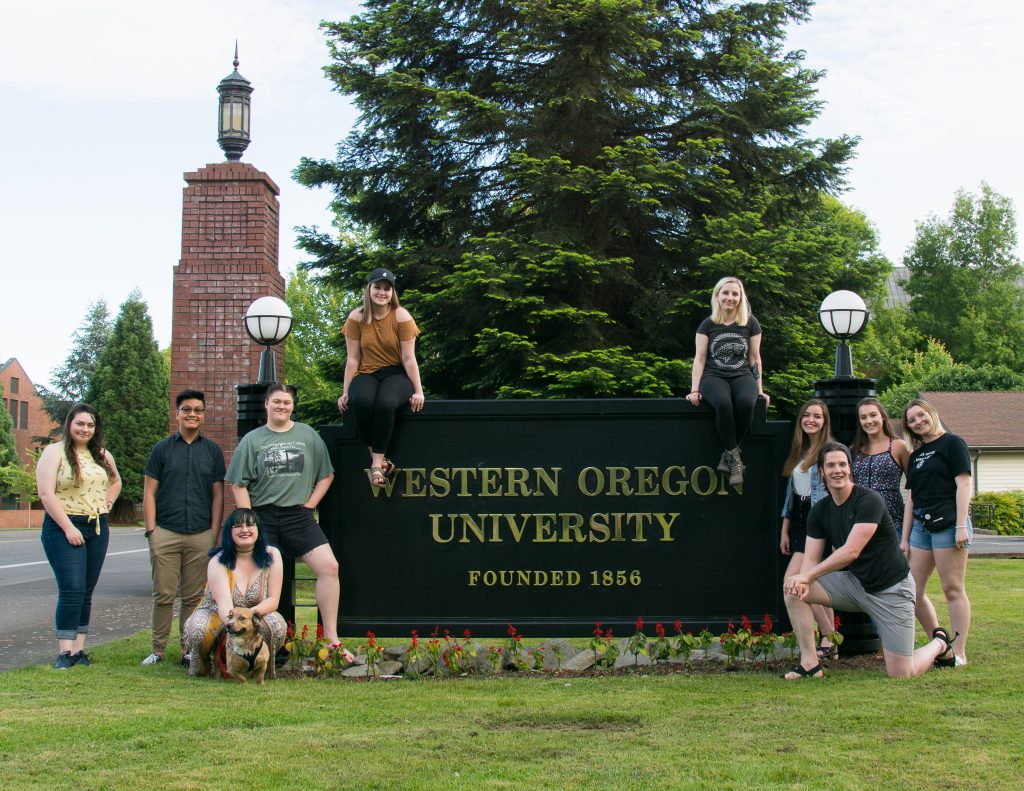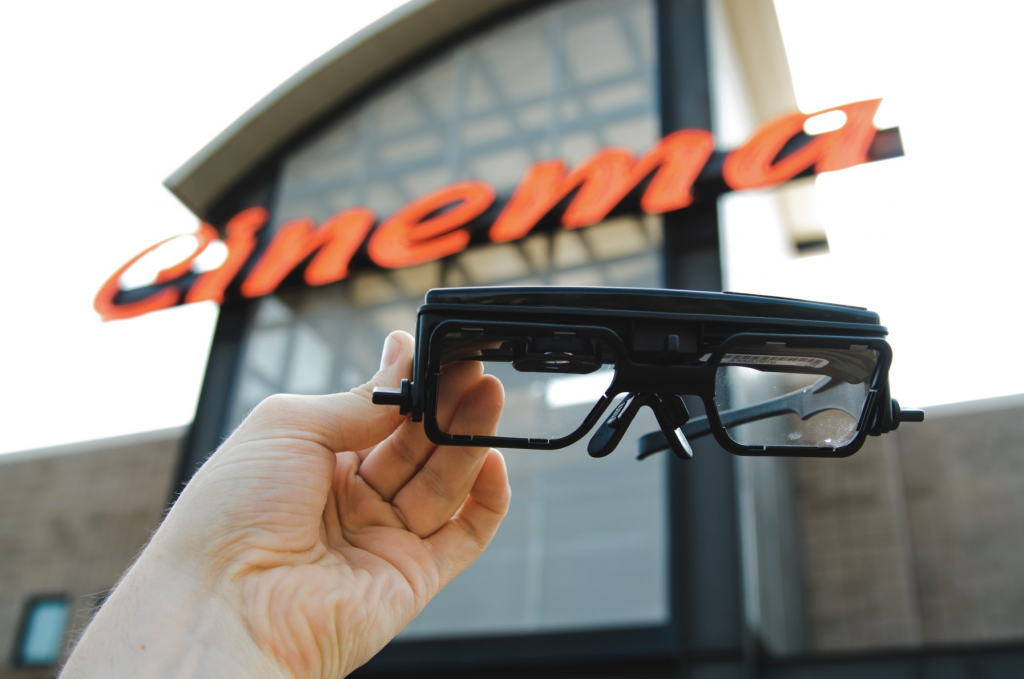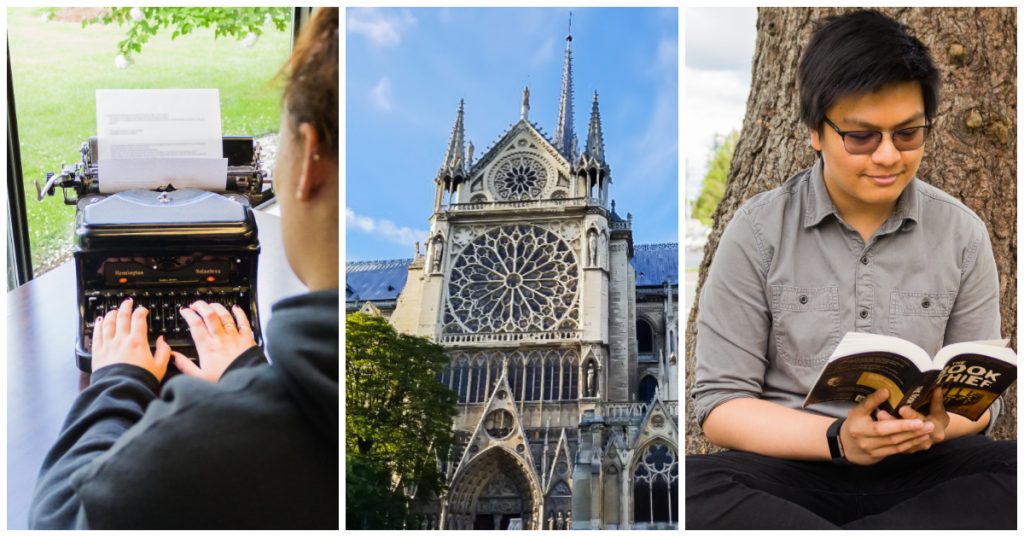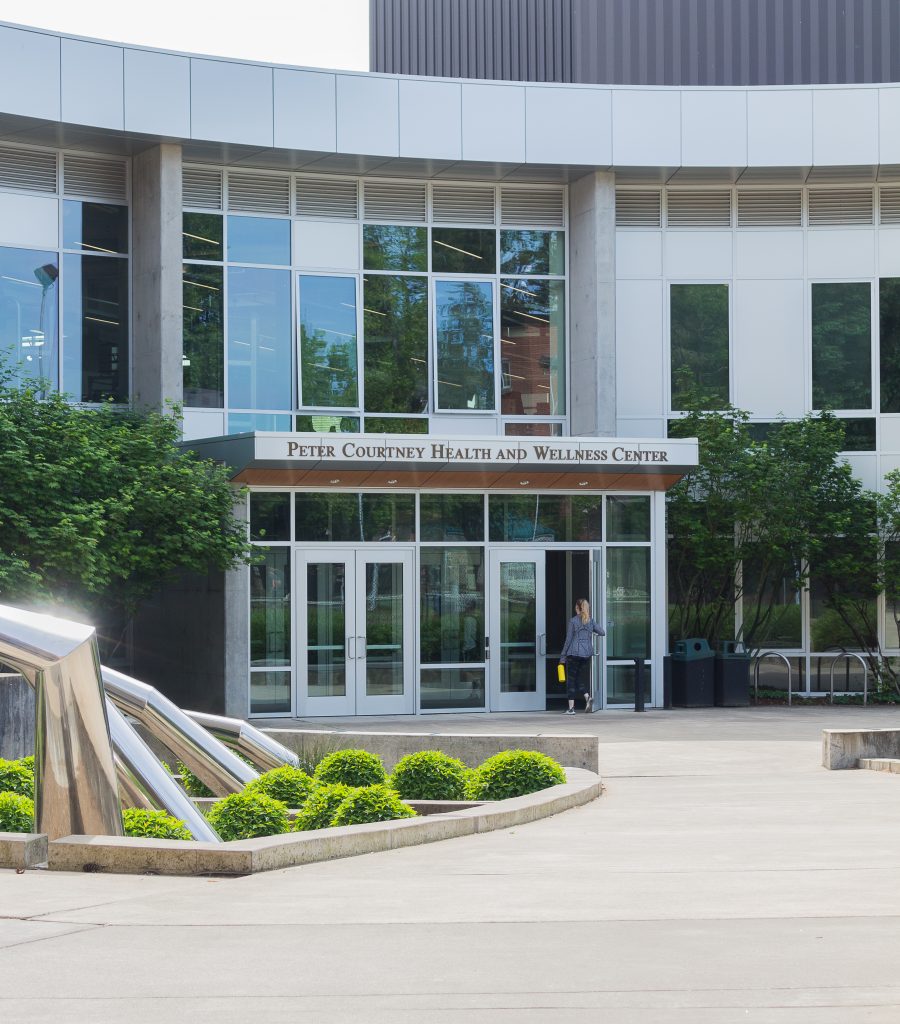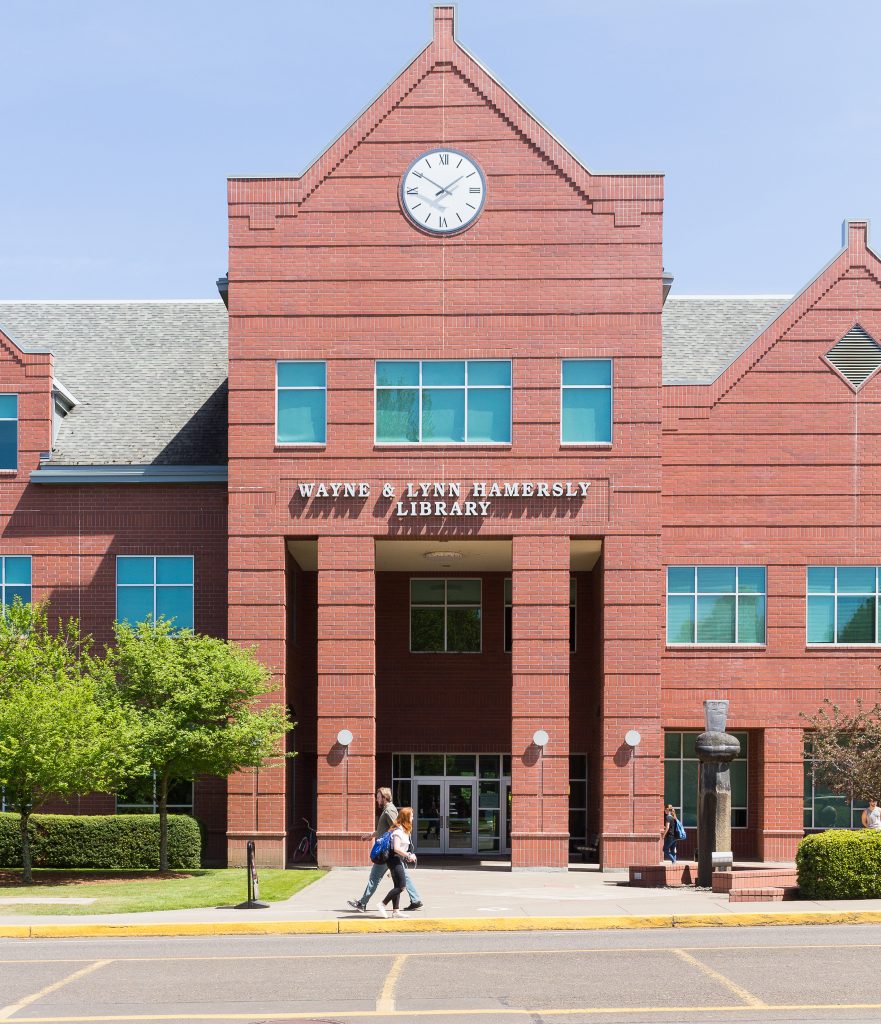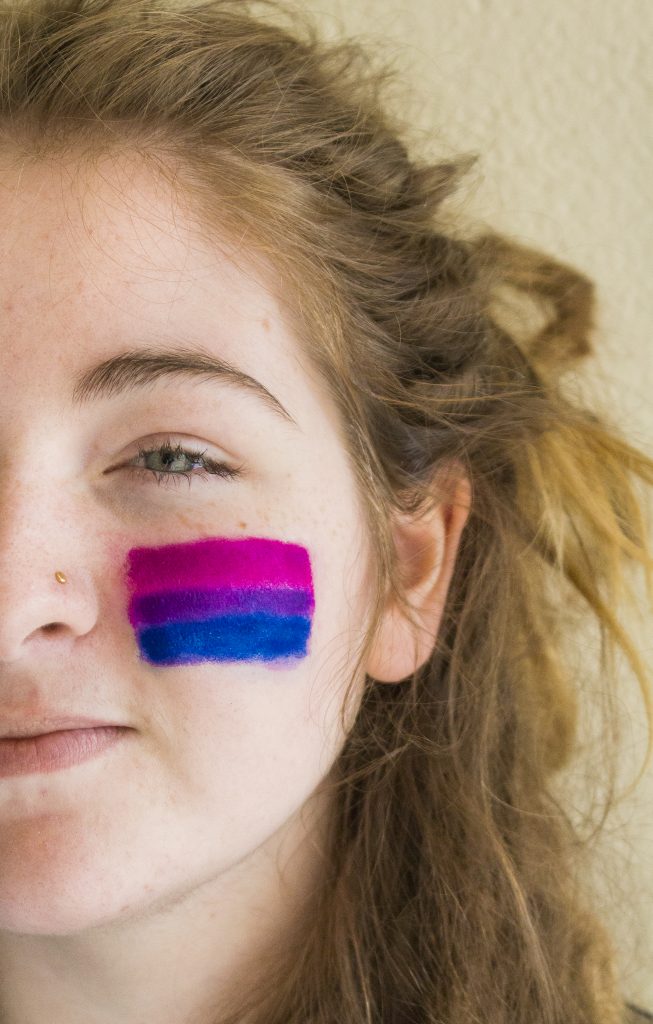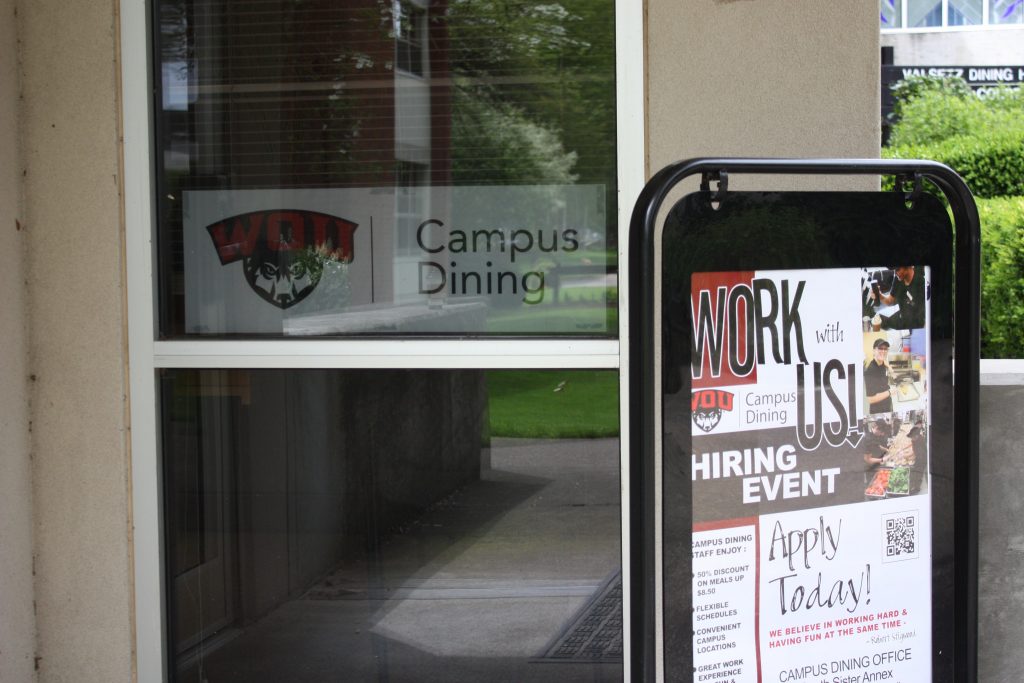
Chrys Weedon | Entertainment Editor
Joey Gibson, defendant in multiple lawsuits for defamation, negligence, trespassing, intentional infliction of emotional distress and several other charges, visited Western Oregon University June 4, 2019 after being invited to speak by the College Republicans club. Gibson is also the founder of a conservative activist group titled “Patriot Prayer” who advocate for “free speech,” gun rights and are against big government.
I’m not going to talk about what Gibson preached about while he was at Western. Honestly, what he has to say isn’t really all that revolutionary — his rhetoric isn’t anything that other people haven’t already said. In that way, his visit was pretty anticlimactic — no violence broke out, which was unusual for him. He spoke about God. He spoke about free speech. He spoke about how much of a victim he is, and about how a group of people within America that have historically had the most privilege — white-passing, straight, Christian, cisgender dudes — are under threat.
Gibson claims he follows a nonviolent ideology. Of course, the evidence points to the contrary, but he still claims it. In fact, almost all of Gibson’s rallies have ended in violence. A simple Google search shows that wherever Gibson goes, violence follows.
But, of course, Gibson is extremely careful to make sure he isn’t caught openly advocating hate and destruction. In his speeches, he talks entirely in generalizations and blanket statements and makes sure to put himself in the position of the victim and the martyr. Like many other alt-right hate groups, Gibson paints “liberals” and “Antifa” as the enemy, while standing on the soapbox of protecting “American values” and “the constitution.”
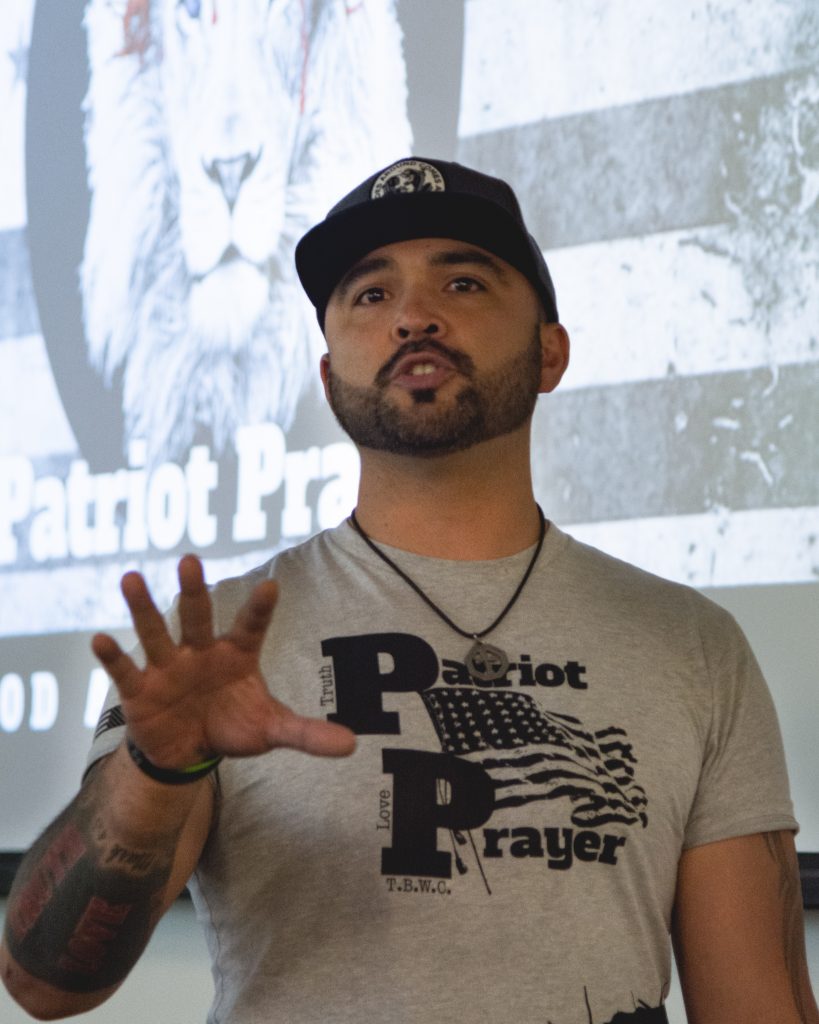
Gibson is a master of manipulating rhetoric and tactics of deflection, and it’s one of the reasons he gets away with claiming to be “nonviolent.” Gibson has a knack for letting his followers do the threatening. Then, when counter-protestors inevitably make their presence known, everything that happens can be claimed by Gibson to be “self defense.”
One clear example of this is Gibson’s connections to the Proud Boys. The Proud Boys are an alt-right organization recognized by the Southern Poverty Law Center as a hate group. They are regularly in attendance at Gibson’s rallies and protests, and are known to incite racist, sexist and homophobic violence. Gibson has “denounced” alt-right groups on several occasions, although according to an article written by William Bradford Nichols for thehumanist.com, he has used them as “security” for multiple Patriot Prayer events. Patriot Prayer and hate groups such as the Proud Boys often show up decked out in full faux-military gear carrying loaded weapons. So, is this all in the name of self defense? Or is “self defense” simply a thinly-veiled excuse to be as violent as you want while avoiding the consequences? Are people really supposed to believe Gibson “denounces” these hate groups?
Gibson is right, in a way. He is allowed to say anything he wants. As a journalist, I also value the first amendment. I also value integrity and adherence to the facts, but I doubt Gibson and I would agree on that. But just because he’s allowed to say anything he wants doesn’t mean he’s immune to the consequences. For example, Gibson recently called Luiz Marquez, left-wing activist, a pedophile, despite having no evidence. So now, Marquez is suing him. Weird how that works.
In all honesty, I think Gibson is just another out-of-touch Christian dude crying “victim” who is fueled by a need for attention. The College Republicans knew this and invited him. I wouldn’t expect more from them.
I expect more from the administration. They approved a speaker who has a history of bringing violence everywhere he goes. They invited an individual who is vocally against sanctuary cities on his YouTube channel (titled Joey Gibson) to a sanctuary city — an individual who is currently being sued by multiple people as the result of his actions and the actions of his group. They allowed this individual to speak after he publicly went after the Senate President of ASWOU.
Gibson being invited to campus quickly became about a bigger issue than free speech. It became about just how much the administration values its student body and its students from minority communities who are actively threatened by Gibson’s poisonous ideologies and the groups he surrounds himself with. The administration should know better than to let the students deal with the fallout of their poor decisions.
Contact the author at cweedon16@wou.edu
Photos by Paul F. Davis


